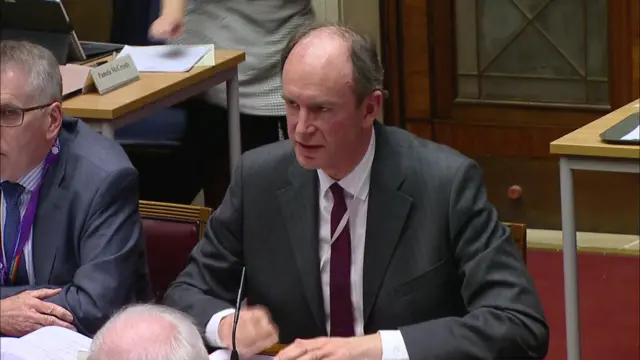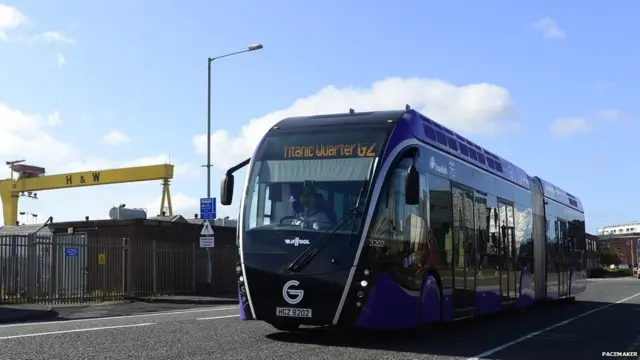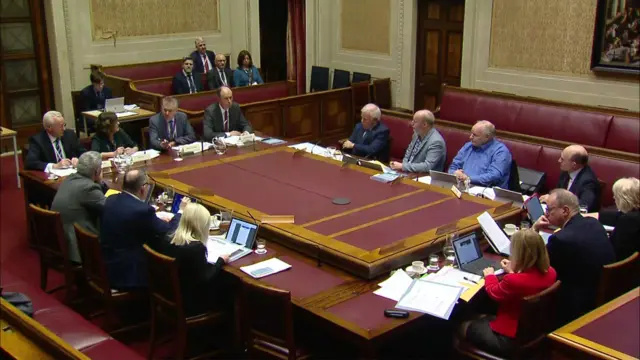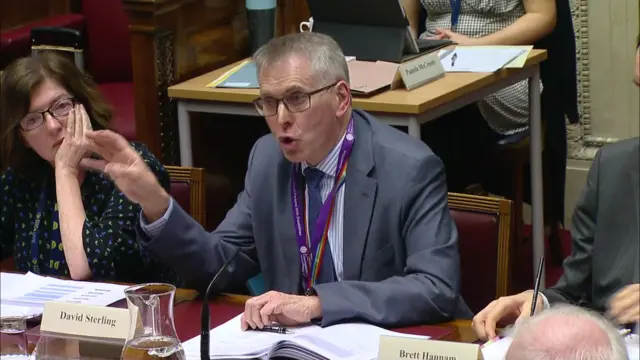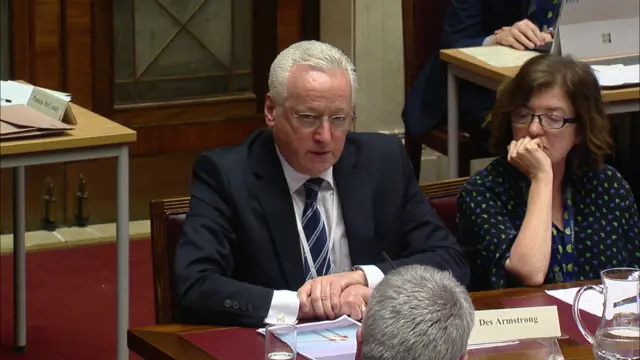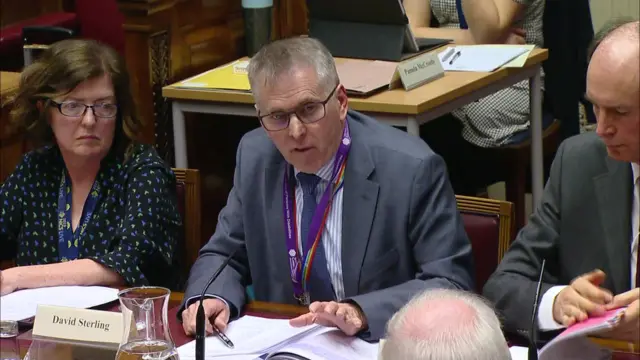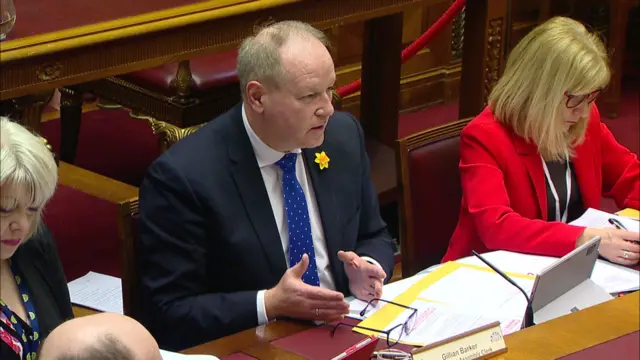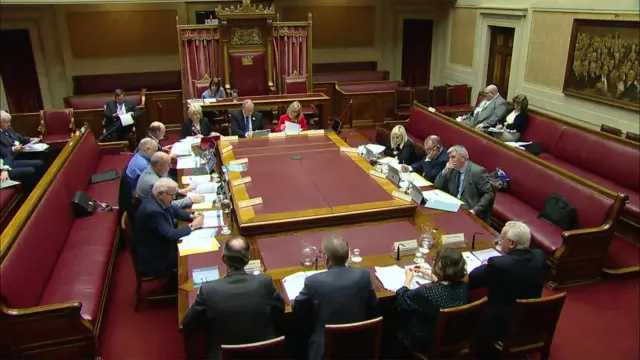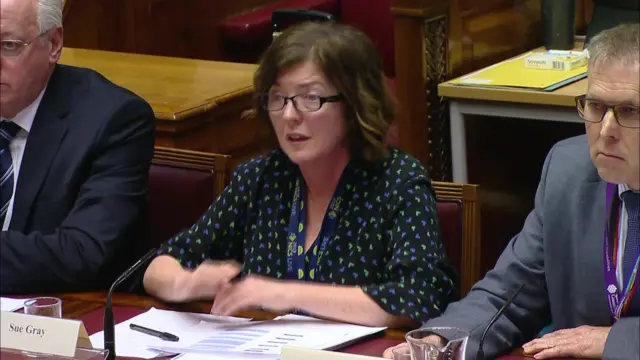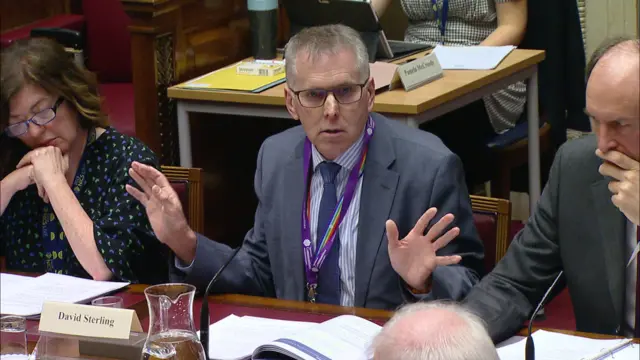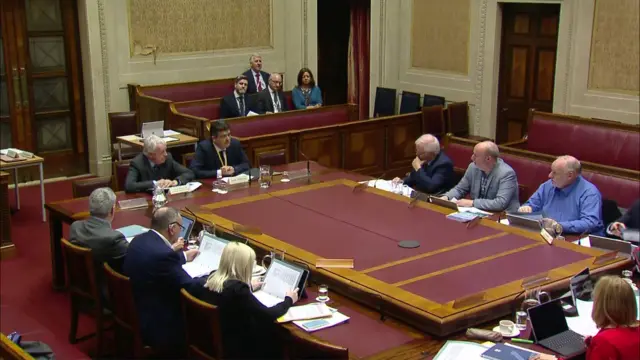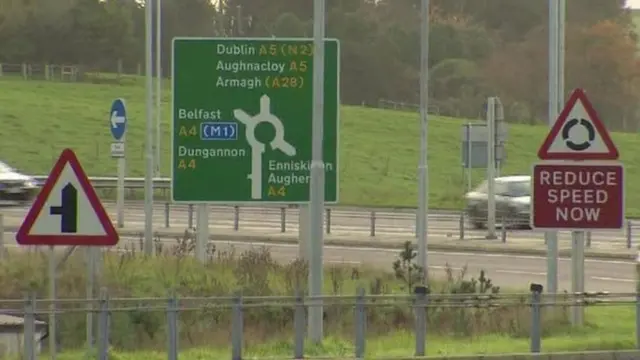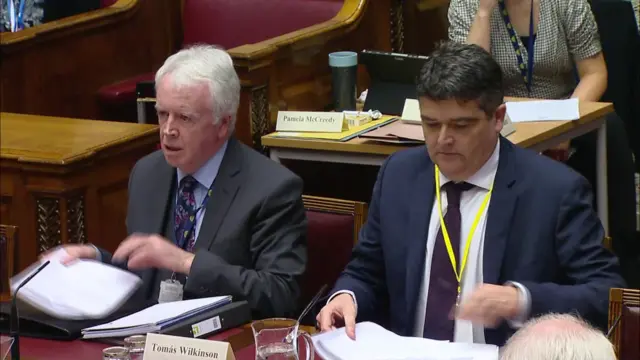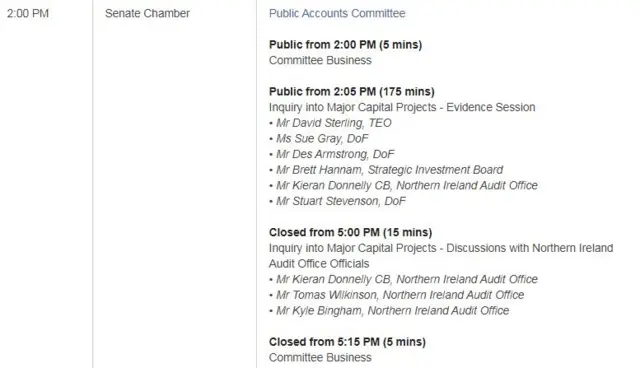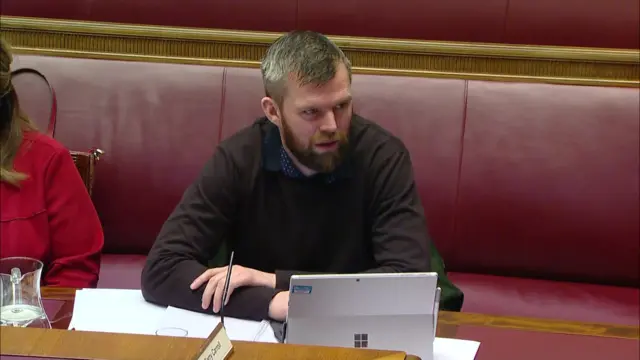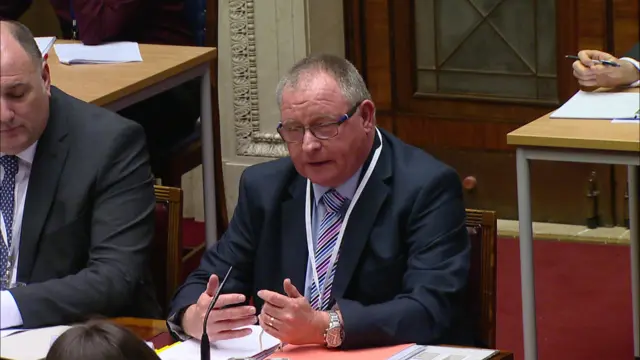That's all for todaypublished at 17:02 GMT 5 March 2020
William Humphrey winds up the evidence session and the committee takes a break.
They'll be returning in private session so we'll have to leave them to it.
We'll be back on Monday at 12:00 with a full assembly sitting.
But there'll be plenty more political coverage until then, starting with The View, tonight on BBC One Northern Ireland at 22:45.
Allow X content?
This article contains content provided by X. We ask for your permission before anything is loaded, as they may be using cookies and other technologies. You may want to read X’s cookie policy, external and privacy policy, external before accepting. To view this content choose ‘accept and continue’.
Then of course there's Inside Politics to look forward to with Mark Devenport on Friday, BBC Radio Ulster at 17:30.
And, Sunday Politics on BBC One NI from 10:00.
If that doesn't tickle your political tastebuds, nothing will!
